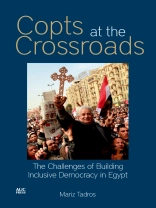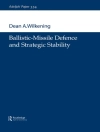In the light of the escalation of sectarian tensions during and after Mubarak’s reign, the predicament of the Arab world’s largest religious minority, the Copts, has come to the forefront. This book poses such questions as why there has been a mass exodus of Copts from Egypt, and how this relates to other religious minorities in the Arab region; why it is that sectarian violence increased during and after the Egyptian revolution, which epitomized the highest degree of national unity since 1919; and how the new configuration of power has influenced the extent to which a vision of a political order is being based on the principles of inclusive democracy.
The book examines the relations among the state, the church, Coptic citizenry, and civil and political societies against the backdrop of the increasing diversification of actors, the change of political leadership in the country, and the transformations occurring in the region. An informative historical background is provided, and new fieldwork and statistical data inform a thoughtful exploration of what it takes to build an inclusive democracy in post-Mubarak Egypt.
Tabla de materias
Introduction
A future of crescent without cross?
Chapter 1
Copts of Egypt
Chapter 2
Overview of sectarian incidents (2008-2011)
Chapter 3
The Patriarch-President Pact and the people in between
Chapter 4
The politics of backstage vendettas: the State Security Investigations Apparatus vs. the Coptic Church leadership
Chapter 5
Mitigation, management and resolution of sectarianism under Mubarak
Chapter 6
Against all odds: The Copts in the 25th of January revolution
Chapter 7
The beginning of the end of the Tahrir spirit
Chapter 8
Coptic protest and Copts in protest
Chapter 9
Egypt’s Bloody Sunday and its ripple effects
Chapter 10
The Copts’ Islamist experience
Chapter 11
Winning for God: sectarianism in the parliamentary and presidential elections
Chapter 12
Sobre el autor
Mariz Tadros is a research fellow at the Institute of Development Studies in the UK. She was formerly a professor of political science at the American University in Cairo. Her most recent publication is
The Muslim Brotherhood in Contemporary Egypt: Democracy Redefined or Confined?












